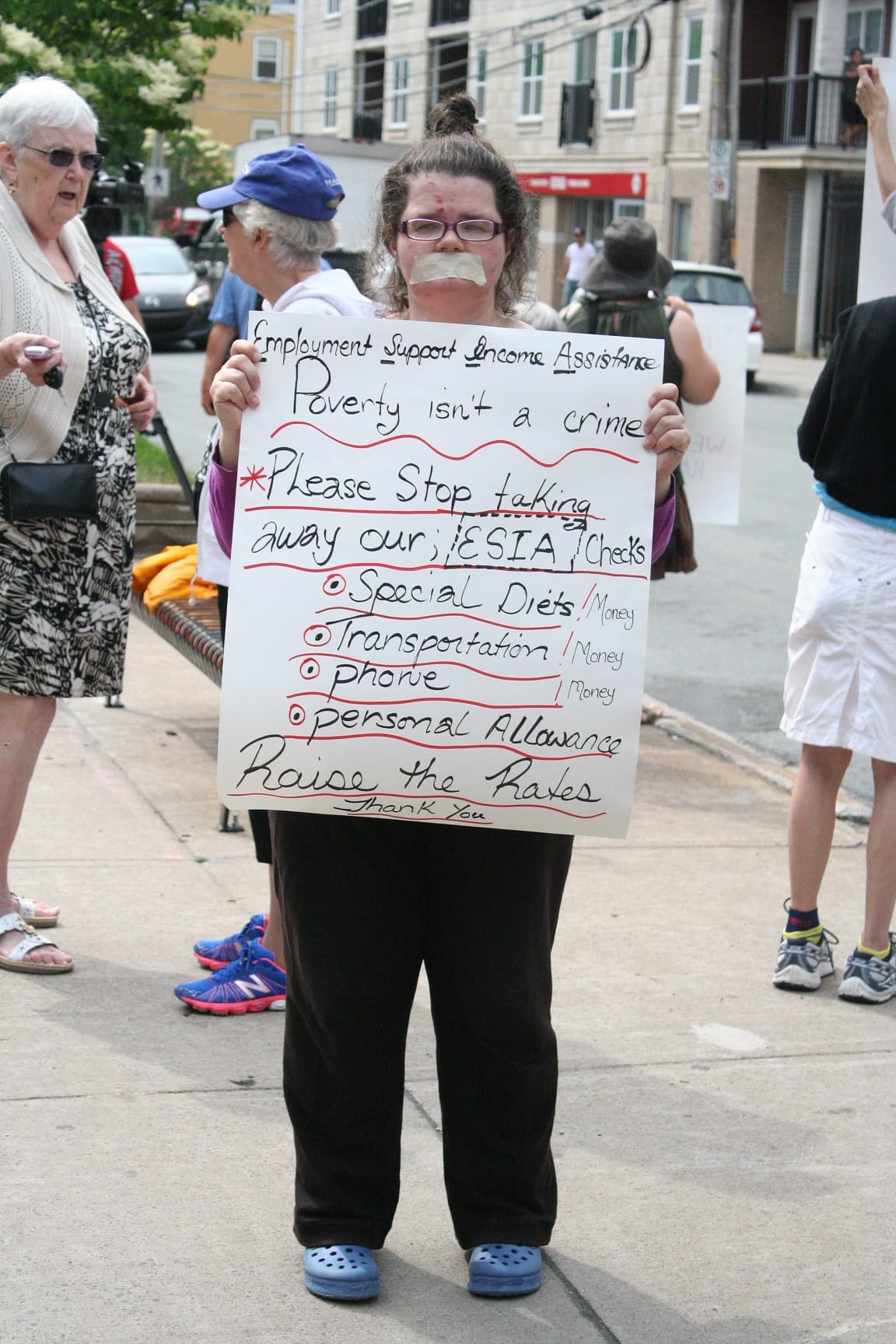KJIPUKTUK (Halifax) – A complaint by a group of welfare recipients who live with disabilities and require special diets is going to court this Thursday. Their special needs allowances have not kept up with ever rising costs, they say, and they want to force the Nova Scotia Human Rights Commission to conduct a tribunal.
The group is joined by the North End Community Health Centre. Arguing on their behalf is Vince Calderhead, senior staff lawyer at Nova Scotia Legal Aid.
The complaint is not directed at Community Services, the department that pays for special diets. It targets the Nova Scotia Human Rights Commission (NSHRC).
The group want a judge to order the Nova Scotia Human Rights Commission to hold a board of inquiry to look into charges that Community Services discriminates against them.
The Human Rights Commission counters that a tribunal is not warranted.

Special needs recipients say they’re discriminated against
Special needs allowances are provided by the Department of Community Services to help people pay for special diets, among other things.
The five people who are lodging complaints have different dietary needs, but they all live with physical disabilities.
Their submission to the court states that from 1996 to the present, the Province has increased the personal allowance for adults by 77%, (from $144 to $255 per month).
Yet during the same time period special needs allowances did not increase at all, despite increases in the cost of special diets.
That’s not fair to people with disabilities, and what’s more, it’s discriminatory, the group says.
Many people think it’s also shameful, and terrible, and all that. But this is a legal case, and emotional arguments seldom sway a judge.
This Thursday’s case
The core of Thursday’s issue is for the judge to decide whether the NSHRC board of directors were justified in saying no to a Board of Inquiry.
What complicates the matter is that the letter from the NSHRC announcing its decision suggested that no board of inquiry was called because there was nothing that contravened the Human Rights Act.
That reason directly contradicts the recommendation of the NSHRC’s very own investigator.
It’s the investigator who looks at the evidence, and at submissions by all affected parties. Then he or she makes a recommendation to the Board of Directors of the NSHRC whether to proceed.The Board of Directors are the folks who make the final decision.
In this case the investigator thought the case had merit, and recommended that the NSHRC hold a board of inquiry.
Well, that may be so, but there were lots of other reasons we considered in rejecting a tribunal, counters the NSHRC, without further clarifying what these other reasons were.
Why it matters for people who receive special diets
What the judge decides is potentially very important for people on welfare who get a special diet allowance.
If the case proceeds to a tribunal, and if that tribunal decides that discrimination plays a part, then Community Services will likely have to raise these allowances, possibly by up to 77%.
That’s a lot of ifs. And the government can appeal any of these decisions. But it could happen.
Similar cases in Ontario found that province to have been acting in a discriminatory manner in the way it dealt with special diet allowances. In some cases people who had been subjected to discrimination were even entitled to retroactive benefits.
The Nova Scotia Advocate will keep you posted.
If you can, please support the Nova Scotia Advocate so that it can continue to cover issues such as poverty, racism, exclusion, workers’ rights and the environment in Nova Scotia.



